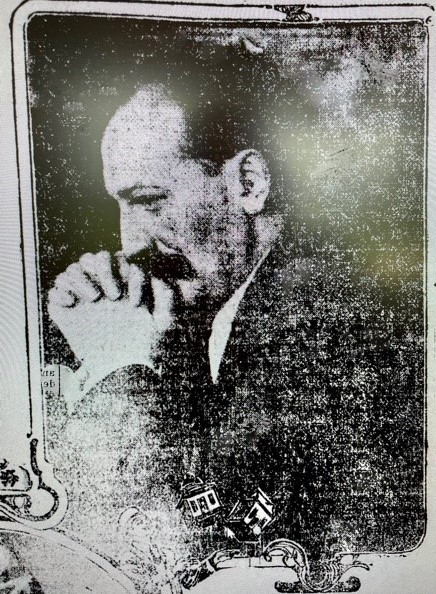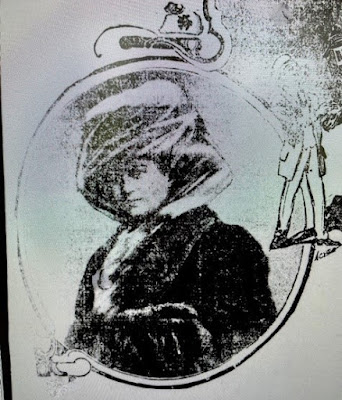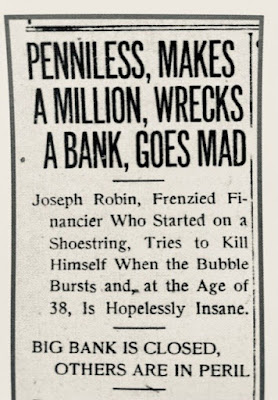 |
| Joseph G. Robin, early twentieth century, newspaper illustration |
Joseph
G. Robin was a New York banker who became very wealthy during the Gilded Age. He amassed
and developed real estate, built a web of railways, and made a few shady deals
with power companies that sprang up in the spray of Niagara Falls.
But it was Joseph’s consolidation of banks, from which he had embezzled mightily, that finally caught up with him. Everything fell apart on December 28, 1910, in the midst of a state investigation of insurance companies. Joseph was arrested and put in the Tombs, a damp crowded prison designed to look like an Egyptian mausoleum, located in lower Manhattan.
Evidently Joseph anticipated the arrest, because he tried to commit suicide by jumping from a window in the Beaux-Arts Building, where he lived several floors above the Café des Beaux-Arts. Further, his friends told reporters, he flaunted a packet of cyanide.
Joseph’s older sister, Louise, was a physician dedicated to improving the medical treatment of inmates in prisons and asylums. She managed to whisk her brother out of the Tombs and hired three alienists to examine Joseph and commit him to a sanitarium. Within a day or two, however, a judge declared Joseph sane, impaneled a grand jury, and sent him back to prison.
Facts and rumors tumbled forth. Joseph and Louise had emigrated from Russia to the U.S. in the 1880s, the children of Herman and Rebecca Rabinovitch. Joseph changed his surname to Robin when he was quite young although Louise remained “Rabinovitch.” Joseph earned his first dollars selling a story to the newspapers. It concerned the scandalous conditions that his sister uncovered in the course of her medical investigations.
 |
| Newspaper sketch of Louise Rabinovitch |
Joseph insinuated himself into Wall Street, investing in various schemes. By the mid-1890s, now a popular financier who pranced around town, Joseph courted wealthy widows and touted his French blood. He pronounced his name “Ro-ban” and thought he had left the past well behind.
Then detectives turned up an elderly Jewish couple who claimed to be the parents of Joseph and Louise. They were brought to the courtroom to see their son, but he and his sister insisted that these people were not their parents. Speaking in broken English, weeping and wailing, the mother gave the District Attorney letters that Joseph and Louise had written to her and her husband. One was dated August 31, 1892.
My Dear Parents: Please
answer me at once if I can have anything of you, or something of you, or
nothing. . . I need $10 for a ticket and $15 for two or three weeks’ board and
lodging. Please answer at once: don’t wait for a minute and send me the money or
write me one word, “not.” Remember this only that if you refuse me I will have
nothing in common with you! Your son, Joseph
Joseph and Louise were adamant that they did not know Herman and Rebecca and refused to speak with them. Perhaps the couple were opportunists but I doubt it. They died a few years after their son was sentenced to one year in prison.
According to reports, Joseph spent his time at the Tombs in an office—not a cell—equipped with a telephone and typewriter. There he carried on, working with his brokers, trading stocks and bonds; mixing despondency and defiance.
 |
| Postcard of the Tombs, early 1900s |
To be continued.
https://www.throughthehourglass.com/2022/06/discovering-joseph-g-robin.html




